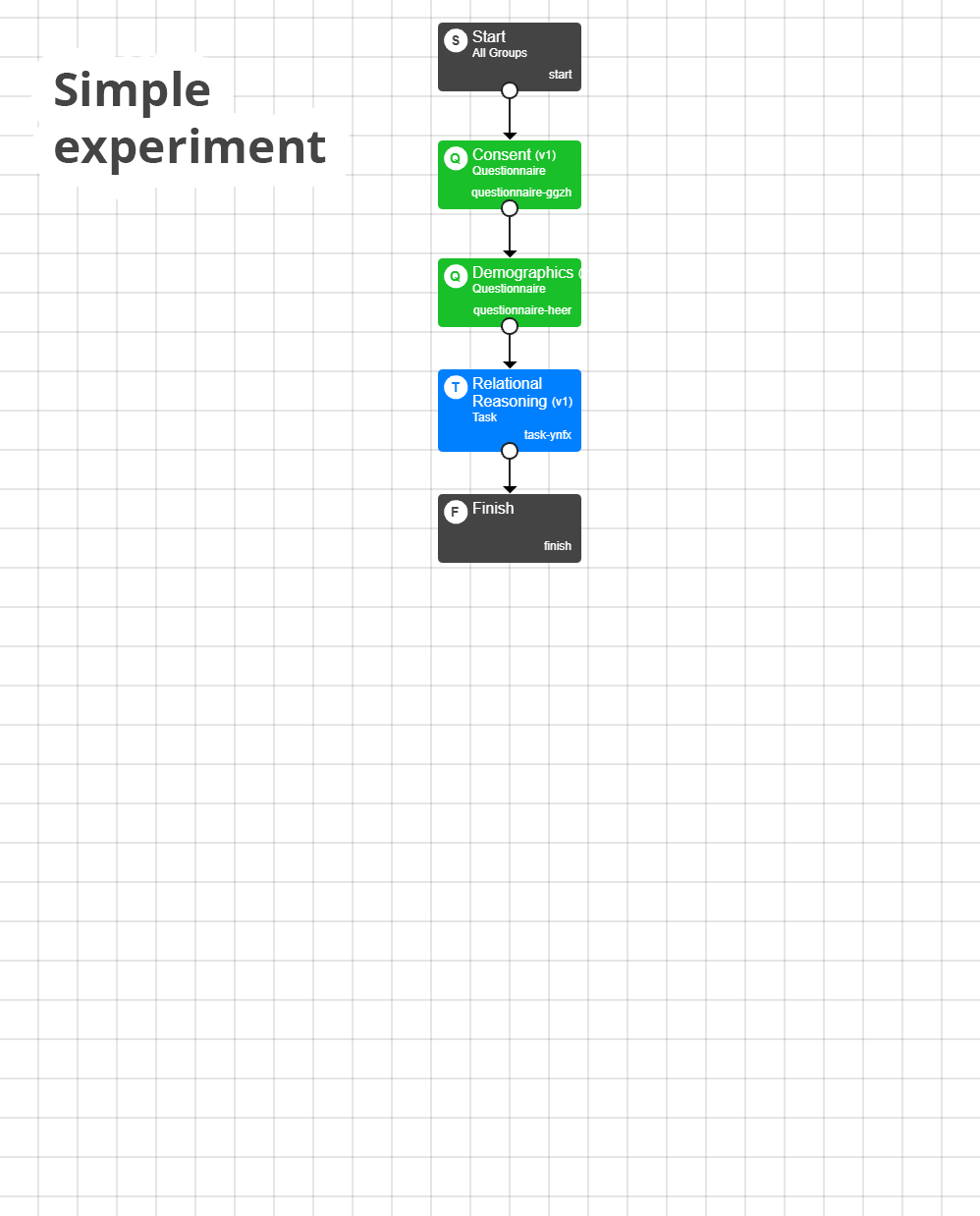Subscribe to Gorilla Grants
We regularly run grants to help researchers and lecturers get their projects off the ground. Sign up to get notified when new grants become available

“Am I going to be successful taking research online. Are you sure it won’t be too technically difficult? I’m not a computer scientists and I don’t want to be!”
I used to have the same problem. I wanted to take my research online, but I wanted to create something more complex than a survey, and I didn’t want to spend 3 months programming my task.
What I really wanted was a tool as easy to use as online survey tools, but more complex, more powerful, and better designed for behavioural research. Maybe a bigger and better version of Survey Monkey…maybe a Gorilla.
So that’s what I set out to do. I set out to create an experiment builder easy enough to be used by anyone, from undergrads to PIs. It would allow randomisation, counterbalancing, pre- and post tests. And consent. And demographics. And the full range of tasks that behavioural scientists want to create. All possible in the same tool.
I founded Gorilla because I believe behavioural science has the capacity to create and test interventions that make people’s lives better. I want to see products and services informed by scientific research, so they actually work. But first, we need to do the research. And we can do more research if we get it out of the lab, reaching larger and more diverse samples and making it easy to test replicability.
In order to empower as many researchers as possible, we’ve put a lot of work into making Gorilla easy to use.
"Wow, I love Gorilla… Was just messing around trying to see if it could do what we needed for a project, ended up creating an entire demo version complete with all counterbalancing ready for the real stimuli to be added later. It’s so intuitive and clear."
Priya Silverstein, University of Surrey
Gorilla isn’t just a software tool, we also provide an astonishingly high level of support so that you are never stuck or alone. We know how easy it is to feel feel lost in research, and we wanted to make sure that didn’t happen to our users.
"In our local [Berlin] zoo a real Gorilla, Bibi, has just had babies. With Gorilla support I feel just as safe and welcome as these tiny sweeties do in Bibi’s arms."
Katharina Kühne, Potsdam University
And it’s not just Priya and Katharina that say nice things. You can see a whole range of testimonials here, and more in depth spotlight interviews with our users here.
We created Gorilla to be intuitive to anyone with experience of common tools like PowerPoint and Excel. If you can use tools with that level of complexity, then you’ll be fine with Gorilla.
Here’s a sneak peek of our tools to show you just how much is possible in Gorilla:
Once you’ve created your tasks (and questionnaires), you’ll use the Experiment Tree to link the elements together with ease. In the animation below, green nodes are questionnaires, blue nodes are tasks, and orange nodes do things like counterbalancing, randomisation and branching. By linking elements together with arrows, it’s simple to author your protocol.
These experimental controls are often horribly complicated in code, but with the experiment tree it’s really clear what you’ve designed and easy to implement. Phew!

Want to learn more? Gorilla makes complex experiment designs easy.
We have several universities using Gorilla to teach undergraduates research methods. You can have a read of our case study with University College London. In a nutshell:
"What we’ve managed to do with Gorilla is give students the tools and templates to make their own experiments, with minimal supervision. Students can go out and test a hypothesis via social media. Results flood in from all over the world, and they’re creating this incredible range of studies. It’s a much richer learning experience.”
Prof Dan Richardson, UCL
If it’s easy enough for them, then there’s a very good change you’ll be fine too!
Sometimes we hear our clients say things like “I was surprised I could pull [my complicated research] off, because setting it up was so easy.”
We've created a handy cheat sheet to answer 'But Can Gorilla Do...', read it here.
You can also take a look through some of the wide range of novel and impressive research other researchers have done with Gorilla: maybe someone did something similar to what you are planning to do?
If you want more of a complete tour, you can watch our on demand Onboarding Webinar.
The best way to find out if Gorilla will work for you is to give it a go. You could even try creating a simple experiment (for example a semantic priming task or the classic stroop task) in several different tools, and then see which one suits you best. Running experiments isn’t only for research, it’s also for making good decisions!
Just remember, with Gorilla you’re never alone. We’re here to help you do great research, and astonishingly good support is only ever a message away.
We regularly run grants to help researchers and lecturers get their projects off the ground. Sign up to get notified when new grants become available